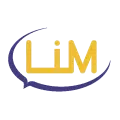Bill 96, also known as An Act Respecting French, the official and common language of Québec, is a significant legislative proposal in Canada that aims to strengthen the use of French in Québec and promote linguistic diversity in the province. While the bill primarily focuses on language policies and regulations within Québec, its implications extend to businesses operating in the province and beyond. Understanding the implications of Bill 96 and taking proactive steps for compliance are essential for businesses to navigate the evolving regulatory landscape effectively.

Language Requirements for Businesses
Bill 96 introduces new language requirements for businesses operating in Québec, particularly concerning the use of French in communications, signage, and interactions with customers. The bill aims to promote the primacy of French in the workplace and ensure that French is the primary language of communication in business transactions conducted within the province.
Impact on Marketing and Advertising
Businesses in Québec may need to adjust their marketing and advertising strategies to comply with the language requirements outlined in Bill 96. This may involve working with a certified translator to translating marketing materials, advertisements, and product labeling into French to ensure compliance with the legislation. Additionally, businesses may need to prioritize the use of French in their promotional campaigns to resonate with local consumers and demonstrate their commitment to linguistic diversity.
Employee Language Proficiency
Bill 96 may also impact businesses’ hiring and employment practices, particularly concerning language proficiency requirements for employees. Employers may need to ensure that employees possess the necessary language skills, including proficiency in French, to perform their job duties effectively and comply with the language requirements mandated by the legislation.
Conduct a Compliance Assessment
Conducting a comprehensive assessment of operations to identify areas may be a great place to start; businesses can discover where they may need to adjust their practices to comply with the requirements of Bill 96. This assessment should encompass all aspects of the business, including communication protocols, marketing strategies, employee training, and customer interactions.
Develop a Language Compliance Plan
Based on the findings of the compliance assessment, businesses should develop a language compliance plan outlining specific measures and initiatives to ensure compliance with Bill 96. This plan should include clear objectives, timelines, and responsibilities for implementing language compliance measures throughout the organization.
Provide Language Training and Support
Businesses may want to invest in certified translation services, language training, and support programs to help employees enhance their language skills, particularly in French. Providing training opportunities can empower employees to communicate effectively in another language and contribute to the organization’s compliance efforts under Bill 96.
Review and Update Policies and Procedures
Businesses should review and update their internal policies, procedures, and guidelines to reflect the language requirements outlined in Bill 96. This may involve revising employee handbooks, communication protocols, and customer service standards to ensure alignment with the legislative requirements.
Monitor Compliance and Adjust as Needed
Compliance with Bill 96 is an ongoing process that requires vigilance and monitoring. Businesses should establish mechanisms for monitoring compliance with language requirements and regularly assess the effectiveness of their language compliance measures. If necessary, businesses should be prepared to adjust their strategies and initiatives to address any compliance issues that may arise.
Final Thoughts
Bill 96 represents a significant legislative development in Canada with implications for businesses operating in Québec. By understanding the implications of the legislation and taking proactive steps for compliance, businesses can navigate the regulatory landscape effectively and demonstrate their commitment to linguistic diversity and inclusion in the province. Compliance with Bill 96 not only ensures adherence to legal requirements but also contributes to the promotion of French language and culture in Québec’s business community.
At Languages in Motion Ltd., our goal is to bring the world together through professional translation and interpreting services. With access to over 200 languages, including American Sign Language, French, Spanish, Portuguese, Chinese, and Arabic, we can help individuals, families, and businesses communicate more clearly than ever before. Our certified translators and interpreters have worked in numerous industries, including the Public Sector (Police, Healthcare, Court, Education, and Government & Municipalities), Healthcare, Finance, Local and International Law Firms, Marketing, Insurance Companies and Private/Independent Medical Clinics, Law and Order, and Immigration. Our experience, passion for delivering results, commitment to clients, and enthusiasm for building relationships are why we are recognized as the best in the translation industry. Contact our team of certified translators and interpreters from Toronto to Winnipeg to Calgary and Vancouver today at 1-888-556-5541.

